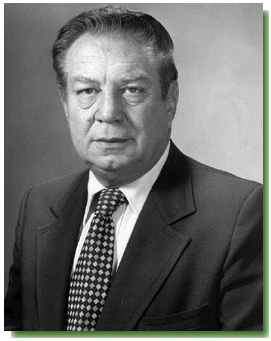

Walter C. Williams
(1919-1995)
earned a bachelor's degree in aerospace engineering from Louisiana
State University in 1939 and went to work for the NACA in 1940,
serving as a project engineer to improve the handling, maneuverability,
and flight characteristics of World War II fighters. Following
the war, he went to what became Edwards Air Force Base to set
up flight tests for the X-1, including the first human supersonic
flight by Captain Charles E. Yeager in October 1947. He became
the founding director of the organization that became Dryden Flight
Research Facility. In September 1959 he assumed associate directorship
of the new NASA Space Task Group at Langley Research Center, created
to carry out Project Mercury. He later became director of operations
for the project, then associate director of the NASA Manned Spacecraft
Center in Houston, subsequently renamed the Johnson Space Center.
In 1963, Williams moved to NASA Headquarters as Deputy Associate
Administrator of the Office of Manned Space Flight. From 1964-1975,
he was a vice president for Aerospace Corporation. Then from
1975 until his retirement in 1982, he served as chief engineer
of NASA. See "Walter C. Williams," biographical file,
NASA Historical Reference Collection.

Updated September 18, 1997